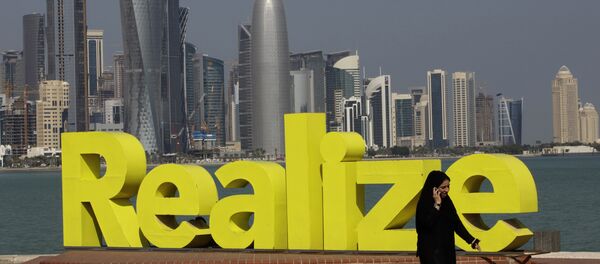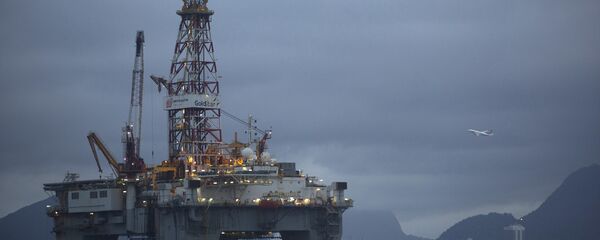The news was marred by Qatar's decision to leave OPEC.
Sputnik discussed the situation in the oil market and Qatar's move with Rajiv Biswas, Asia-Pacific Chief Economist at IHS Markit.
Rajiv Biswas: I think if we look back to what's happened in world oil markets since 2014 we have seen very big fluctuations in the world oil price and even in the last two years we've seen quite dramatic moves in the world oil price driven by various factors relating to increased supply from certain players at sometimes and then at other times by demand factors, so it's the interplay of supply and demand and changes in the way that production has moved as well as some political decisions around whether to have production cuts or not that have influenced oil prices and, of course, the oil sanctions that the US has imposed on Iran, that's one example, of how political decisions can have quite an impact on the market perceptions on the outlook for the oil price.
READ MORE: Riyadh to Cut Oil Output by Extra 200,000 Bpd Under New Deal — Iraqi Minister
So that's why we've seen quite a lot of volatility in the oil price between 2014 and now. We've seen oil markets experiencing a number of quite significant speculative shorting cycles and so we're currently in what seems like another cycle. So definitely it's a period of considerable oil price volatility and it's likely that will continue around a trend, although, the overall price of oil may average a relatively stable amount in the year ahead, we'll see a lot of volatility around that average.
READ MORE: US Firms to Exit Oil Field Poised to Decrease EU Dependence on Russia — Report
Sputnik: Apart from correlation supply and demand what other factors affect the price formation?
Rajiv Biswas: Obviously at various times it's the swings in supply and demand that are very crucial, but I think political factors and their impact on the supply side and, perhaps, on the demand side as well can be quite important. So, I think we've seen that the politics around oil are playing an important role and a good example of that are the US oil sanctions on Iran which are going to result in quite a significant reduction in Iranian oil production.
Over the period since the middle of this year until the end of 2019, we do expect to see quite substantial reductions in Iranian oil production. There have already been some significant reductions and some further reductions are going to happen as some of the countries that are big buyers of Iranian oil stop buying Iranian oil or reduce their purchases of Iranian oil because of the US sanctions. So, the sanctions effect, I think, is one example of why the political decisions around oil are also quite significant.
READ MORE: Iran Asking OPEC to Use March-April Oil Output Levels for New Cuts — Source
Sputnik: Let's talk about Qatar, it has been in OPEC almost since its formation, were you surprised by Doha's decision to leave the cartel?
Rajiv Biswas: Well it's been obviously quite a lot of tension between Qatar and a number of the other OPEC members since June 2017 when a number of OPEC members, including Saudi Arabia and UAE, imposed a political and economic boycott on Qatar. So there, obviously, have been ongoing tensions.
So, I think this decision, at least partly, reflects that increasing tensions that we've seen over the last 18 months. And Qatar has also said that since the bulk of its energy production is around LNG exports rather than oil exports, then the focus of OPEC is mainly on crude oil. So for that reason as well it's not considered by Qatar appropriate anymore to remain a member of OPEC, those are the perspectives given by Qatar.
The views and opinions expressed by the speaker do not necessarily reflect those of Sputnik.
For more information listen to this edition of Weekend Special with Rajiv Biswas.





